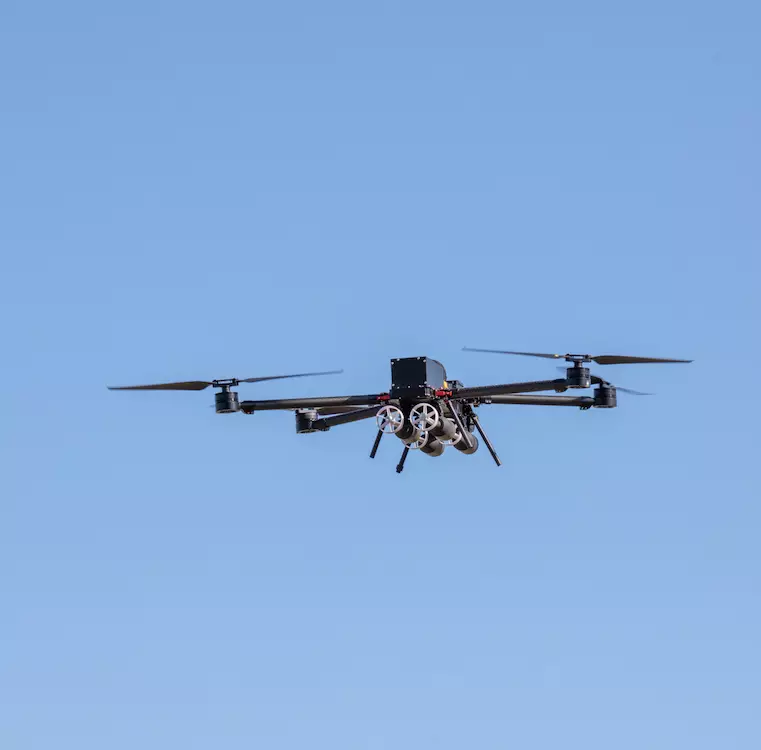The landscape of military engagement is undergoing a radical transformation. This evolution is underscored by the ongoing conflict in Ukraine, a theater where technological advancements define logistical and strategic outcomes. Traditional military might, characterized by overwhelming numbers of tanks and aircraft, is becoming increasingly costly and potentially outdated for smaller nations trying to defend themselves. A notable innovation emerging in this context is Origin, a Latvian startup specializing in the development of advanced, cost-effective autonomous drones designed to provide robust military capabilities without the financial burden typically associated with modern warfare.
Origins and Vision
Founded in March 2022, in response to the unfolding crisis in Ukraine, Origin was established by Agris Kipurs and Ilya Nevdah—two seasoned professionals with a proven track record in the drone industry. Their previous enterprise, Airdog, set a precedent by producing an autonomous drone that catered primarily to extreme sports enthusiasts. Following Airdog’s acquisition by Alarm.com, Kipurs and Nevdah realized their expertise in creating autonomous systems could have profound implications for military applications. Their pivot signals a shift not just in focus but in the potential utilization of drone technology, moving from consumer-focused products to essential tools for defense.
At the heart of Origin’s innovation is the BEAK, an ISR (Intelligence, Surveillance, and Reconnaissance) drone equipped with cutting-edge precision guidance technology. Unlike many drones currently utilized on the battlefield—which often sacrifice themselves to deliver explosives—the BEAK is designed to retain functionality post-mission. This reusable capability offers a stark contrast to traditional first-person view drones which are frequently lost in action. With a compact and man-portable design, the BEAK responds to the unique challenges faced in modern combat scenarios, especially in environments such as Ukraine where rapid adaptability is crucial.
Kipurs is keen to make a distinction in how the BEAK is perceived: it is not merely another drone but rather a “flying Javelin.” By emphasizing the drone’s role as a low-cost precision weapons system, Kipurs underscores a significant departure from conventional drone applications, which are predominantly reconnaissance-focused.
With the cost of warfare continuously escalating, smaller nations, including Latvia and others, are recognizing the necessity of innovative solutions to ensure national defense. Kipurs articulates this sentiment, noting the urgent need for emerging tech solutions to fill the gaps left by traditional military models. For countries with limited budgets, investing in advanced drone technology that allows for precision strikes at significantly reduced costs—approximately 20 times less than existing alternatives—is not just beneficial; it might be the only feasible path forward.
Origin’s success is not only rooted in its technological innovations but also in its ability to secure funding and strategic partnerships. The startup’s recent fundraising round brought in €2.4 million, bolstered by support from the Latvian Ministry of Defence and various European Union grants. This financial backing is a testament to the confidence stakeholders have in Origin’s mission and its vision for reshaping the defense landscape.
While Origin’s early successes paint a promising picture for the future of defense tech in small nations, there are considerable challenges ahead. The landscape of warfare is dynamic, influenced by rapid technological advancements and geopolitical shifts. To remain competitive, Origin must not only continue innovating but also navigate the complex realities of international relations and military ethics.
As the ongoing conflict in Ukraine underscores the urgency for nations to rethink their military strategies, Origin’s emergence as a key player signifies a broader trend of adapting modern technology for contemporary warfare needs. The success of companies like Origin may very well reshape the narrative around defense capabilities, especially in an era where traditional methods are becoming obsolete. The intricate blend of technology, strategy, and funding could redefine the future of autonomous warfare, offering new pathways for national defense in a world rife with uncertainty.

